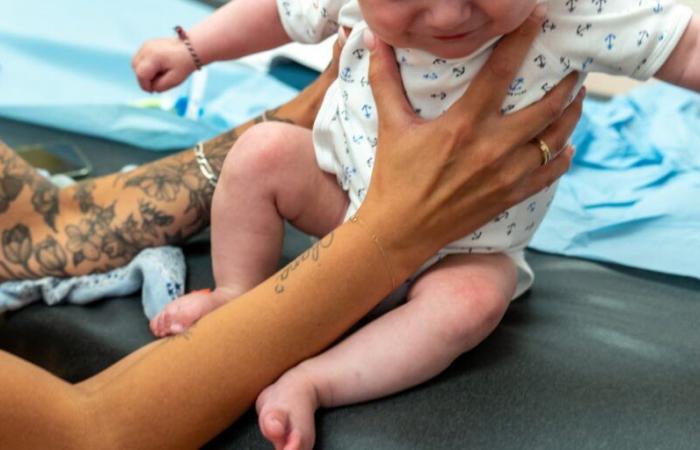Sickle cell anemia, a genetic disease with potentially serious effects, can be screened in all newborns from November 1, while this test was until then targeted in mainland France, but generalized overseas, the Ministry of Health announced on Tuesday. Health. This generalization was recommended by the High Authority for Health at the end of 2022, “considering that sickle cell disease is the most common genetic disease at birth, that its incidence is increasing and that this pathology is responsible for high morbidity and a significant reduction in survival”, recalled the Directorate General of Health in a press release.
Sickle cell anemia, a hereditary blood disease affecting red blood cells, manifests itself, among other things, by anemia, painful crises and an increased risk of infections. Its repercussions can be serious: it is, for example, the leading cause of stroke in children. “The number of children screened with sickle cell syndrome has increased in recent years, from 431 newborns screened in 2016 to 684 in 2022,” the ministry noted.
“Risk of error in targeting”
Screening at birth allows immediate treatment to alleviate symptoms and avoid complications. Until now, neonatal screening for sickle cell disease was targeted in mainland France on newborns to parents from areas where the genetic risk is greater (Antilles, Guyana, Réunion, Mayotte, sub-Saharan Africa, Cape Verde, Brazil, India , Indian Ocean, Madagascar, Comoros, Algeria, Tunisia, Morocco, Southern Italy, Sicily, Greece, Turkey, Lebanon, Syria, Saudi Arabia, Yemen, Oman).
But targeted screening in mainland France has proven to be heterogeneous depending on the region, while none is free of cases, and “a risk of error in targeting” by caregivers has also been identified, noted the HAS at the end 2022. Widespread screening would also remedy “the risk of stigmatization of currently targeted populations”, according to her.
728,000 children benefited
Until now, in France, in the two or three days following the birth of a child, screening – not obligatory, but strongly recommended – is offered for 13 diseases, from a few drops of blood taken from the heel of the child. infant and collected on a blotter. The objective is to detect certain rare but serious pathologies, generally of genetic origin, to treat them before the first signs and avoid, or limit, their impacts.
“In 2022, more than 728,000 children will have benefited from this screening,” the ministry said. Generalized screening for sickle cell anemia “is part of the dynamic of strengthening the national neonatal screening program”, gradually extended in recent years, added its press release. Other rare and serious diseases should be added in 2025, following other recommendations from the HAS.






